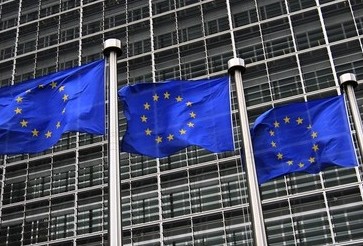Officials, experts criticise Dutch Greek island refugee ferry plan
 The Dutch plan to send asylum seekers who arrive on the Greek islands in small boats back to Turkey by ferry does not meet the UN treaty on the treatment of refugees, according to EU officials.
The Dutch plan to send asylum seekers who arrive on the Greek islands in small boats back to Turkey by ferry does not meet the UN treaty on the treatment of refugees, according to EU officials.
A spokesman for European commission chairman Jean-Claude Juncker described the plan as ‘illegal’ and said that the ‘EU does not get involved in pushing refugees back’.
Former European commissioner Karel De Gucht told Belgian radio the plan is ‘unrealistic’. In addition, Turkey does not meet the criteria as a safe country for all categories of refugees, the Dutch refugee organisation Vluchtelingenwerk said.
Mass grave
Stemming the surge in refugee numbers is a key part of the Dutch presidency of the EU which started at the beginning of this year.
The plan was outlined by Labour party leader Diederik Samsom in an interview with the Volkskrant newspaper on Thursday morning. ‘The Aegean Sea has become a mass grave,’ Samsom told Radio 1. ‘Last year 3,700 people died. Millions of refugees are risking their lives to come here and we have to stop it.’
Samsom said it is likely the EU will agree to the plan and that the first ferries would leave in March or April. Migrants then arriving on Lesbos, Chios or Kos would be taken back to Turkey, where they had come from. Turkey, he said, is willing to accept them back on the condition that the EU allows in 150,000 to 200,000 refugees a year.
Shared costs
Talks have been ongoing with Turkey and it still has to amend a number of rules and improve its treatment of Syrian refugees, Samsom said. ‘It has to be a safe country,’ he said. ‘Much has improved in the past six months. Syrians can now work and go to school and they have more perspective. A few more changes and Turkey will be ready to make deals.’
A key group of some 10 EU countries must be willing to accept the refugees who are admitted to Europe. Those that don’t will have to contribute to the cost of the care, he said.
Thank you for donating to DutchNews.nl.
We could not provide the Dutch News service, and keep it free of charge, without the generous support of our readers. Your donations allow us to report on issues you tell us matter, and provide you with a summary of the most important Dutch news each day.
Make a donation